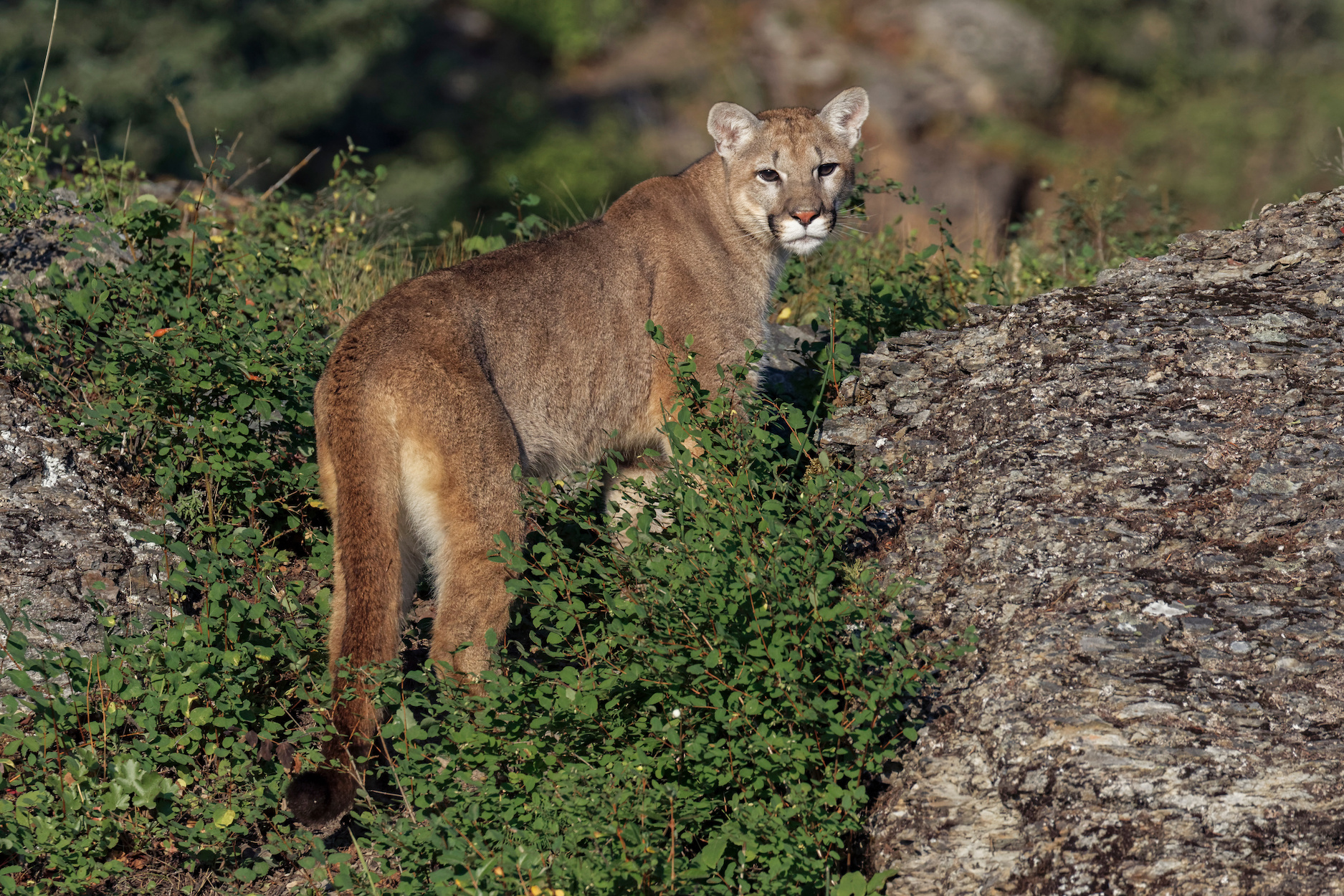On June 3 Alaska Wildlife Troopers received notice that a mountain lion had been shot and killed on Wrangell Island, which lies in the southeastern part of the state near the border with British Columbia. This wouldn’t be such surprising news except for the glaring fact that mountain lions don’t technically live in Alaska. The big cats aren’t native to the state, and they’re rarely seen by hunters and other outdoorsmen. In the state’s 65-year history, there have only been two other recorded instances of mountain lions being killed there.
The June incident is still being investigated, according to the Alaska Department of Public Safety, and a spokesperson with the DPS says no further information is immediately available. It’s therefore unclear who killed the cat and the events leading up to its death. The lion was found on U.S. Forest Service land, so the USFS is involved in the investigation and has the animal in its possession. The agency’s Wrangell Ranger District Office did not immediately reply to a request for comment.
Alaska Department of Fish and Game public information officer Riley Woodford couldn’t share any further details about the most recent incident (he says the agency hadn’t been aware of the incident until Outdoor Life‘s inquired about it). He did, however, point to some information on the two other lions that were killed inside state lines more than two decades ago. In 1989, a mountain lion was shot near the city of Wrangell, Woodford explains in an ADFG article. And in 1998, a mountain lion was caught and killed in a wolf trapper’s snare on South Kupreanof Island.
South Kupreanof Island is to the northwest of Wrangell Island but in the same close proximity to the mainland. Both are part of the Alexander Archipelago, a 300-mile stretch of islands in southeastern Alaska.
“We get sporadic reports, maybe two or three a year. Usually there’s one report, then word gets out and there’s a rash of sightings that are not substantiated,” ADFG wildlife biologist Rich Lowell explained in that article. “It’s almost like Sasquatch.”
Read Next: Close Call: I Shot a Mountain Lion at 7 Paces
Because of Wrangell Island’s proximity to British Columbia, which is home to an estimated population of 5,000 to 7,000 mountain lions, it’s likely that the mountain lion wandered over from there. It’s fewer than 30 miles as the crow flies from the eastern edge of the island to the international border.
A narrow channel separates Wrangell Island from the thin strip of mainland Alaska bordering B.C., which means the lion would have had to swim to get there. This might seem a limiting factor, but mountain lions are shockingly good swimmers. Vancouver Island, which is separated from the B.C. mainland by several straits, is home to a well-established cougar population.
Most of the mountain lion sightings and kills that are recorded in B.C. are concentrated in the lower third of the province well south of Wrangell Island, which makes the June discovery even more unusual. According to the B.C. Wildlife Federation, however, the species’ range is thought to be expanding northward,

